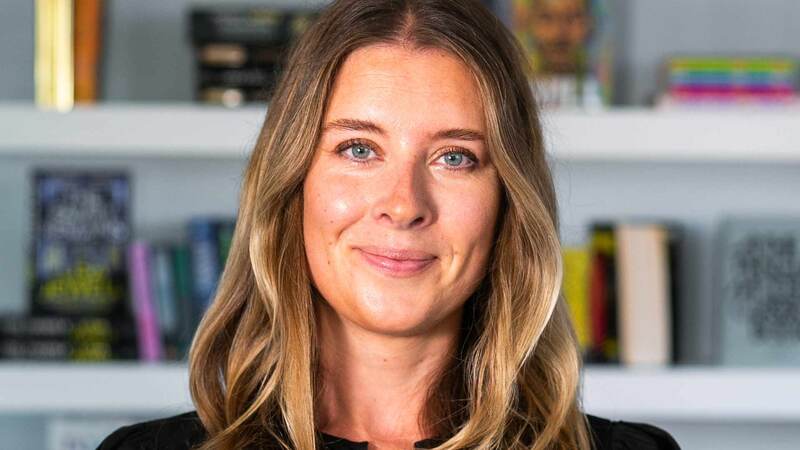You are viewing your 1 free article this month. Login to read more articles.
Coming back greener
In November this year, an army of policymakers, scientists, lobbyists, civil society and activist groups will descend on Glasgow for the 26th annual UN Climate Change Conference, known around the world as ‘COP26’. The conference was originally scheduled to take place in 2020, designated by the UK Government as their ‘Year of Climate Action’, but had to be rescheduled due to the pandemic.
The selection of Glasgow is no accident. Last year, the city was awarded Global Green City status by the UN, with an ambitious target of reaching carbon neutrality by 2030. The agenda for this conference is no less ambitious, being the first major opportunity to evaluate progress towards the target set in the 2015 Paris Agreement to limit mean temperature rises worldwide to 1.5°c.
Climate change and sustainability are key agendas for all of us in the business of books and reading. We have a golden opportunity not only to model sustainability in our own practices, but also to help inform, educate and empower the reading public to take action of their own.
Not that the public need much prompting! In recent years, the tide of public opinion has shifted decisively towards environmentally-accountable business practices. According to the Nielsen Global Sustainable Shopper Survey in 2019, 81% of consumers feel strongly that companies should help improve the environment (rising to 85% among millennials).
I have been proud to chair the Executive Board of BIC Ltd, the book industry supply chain organisation, as they have developed their pioneering Green Promise, helping the book industry to reduce waste across production, distribution and fulfilment.
At the BIC ‘Building a Greener Business’ seminar at the 2020 London Book Fair, Jo Shaw of Nielsen Book Services highlighted the Government’s commitment to zero avoidable waste by 2050 as well as opportunities to adopt more sustainable practices and reduce plastic waste (particularly the use of virgin plastic).
In many ways, the publishing industry has led the way – for example, signing up to international accords on sustainable production practices and actively seeking greener options for paper, ink, packaging and labelling. The industry’s commitment is nicely summed up in the following from Hachette’s Environmental Policy: “Our view is that care for the environment goes hand-in-hand with our work as publishers.”
In libraries, we share this view, and we are committed to developing more environmentally-sustainable practices across our buildings, services and collections. CILIP recently set out this commitment in a position paper, "Libraries, Information and Knowledge Change Lives" and explored the theme in depth in partnership with the Climate Museum UK at our annual conference last year.
Creating more environmentally-sustainable library spaces is both a significant challenge and a tremendous opportunity. In the case of new-builds and capital projects, libraries are increasingly specifying environmental performance standards like LEED (Leadership in Energy & Environmental Design) – demonstrating that beautiful, liveable buildings and sustainability often go hand-in-hand.
But the vast majority of library spaces are in existing, established buildings. We face a very significant challenge in retro-fitting spaces to improve their energy efficiency. Interestingly, it looks as though one of the lasting impacts of COVID-19 will be a tightening up of regulations for ventilation and air control, providing an opportunity to commission new, more energy-efficient solutions in existing spaces.
Looking ahead, we think there is a real opportunity to use library spaces and buildings as a showcase for environmentally-sustainable building practices. Libraries are unique multi-functional spaces, offering comfort and respite while supporting a wide range of uses. We would like to explore how these spaces can co-exist more sustainably with their local ecosystems, communities and economies, using sustainable materials and local skills.
We are also exploring the many ways in which our approach to collections and stock can promote more sustainable library practice. For example, how can our selection of formats, whether print, digital or accessible/large-print support our ambitions for carbon reduction? How can we work with publishers to continue to provide the widest possible range of reading materials while reducing waste, packaging and energy use?
A new IFLA Special Interest Group – ENSULIB – has been established to explore these and related questions. In their words, “The consideration of the role of humanity in climate change and the notion of sustainable development are core concerns of society, and consequently of libraries.”
This broader view is also pointing us towards another set of questions focused on the connection between reading, literacy and people’s engagement with the green agenda. We are currently exploring this from two angles.
The first looks at the question of people’s ability and willingness to engage with the science, data and evidence around man-made climate change. Can we do more as libraries to foster the skills needed to understand our impact on the planet and how climate crisis can be averted?
The second considers our educational role – how do we use books and reading to excite and inspire the next generation to connect more meaningfully to the environment and the natural world, to understand their own impact on the world around them and to take collective action? Books and reading have the unique power to build empathy between people, so why should it not do the same between all of us and the planet we call home?
We want to open up this dialogue with our partners across the book industry, including publishers, authors, illustrators, agents, retailers and platforms. We hope to learn from the examples of great practice happening already across our industry and to be able to do more to help people everywhere shape a better, more sustainable world through books and reading.
For more information, please email me at nick.poole@cilip.org.uk or follow us on twitter @CILIPinfo.















